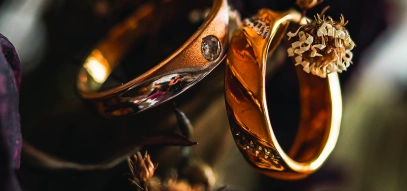RELATED CONTENT

Luxury
A personal approach to positioning your business
Lockdowns and social distancing measures introduced around the world in response to the virus have led to store closures – some for weeks on end – in the luxury capitals of London, Paris, New York and others. After brands moved to protect their people and customers by adhering to the guidance, household names including Prada and Louis Vuitton turned their attention to making medical equipment. At the same time the sector was forced to reckon with a massive economic downturn that could see global luxury sales suffer a year-on-year decline of 25% to 30%.[1]
Such a shock will send ripples throughout the whole sector, but it will be particularly felt by smaller, independent luxury brands. As wholesalers have temporarily closed, smaller brands have been cut off from their customers. Encouraged by wholesalers to work through them, many smaller brands lack a developed online offering and are struggling to sell. The crisis is a tough reminder that they need more than one route to market, and this could be an impetus for them to create and improve their e-commerce options, as well as their bricks and mortar presence.
Smaller brands are doubly affected as, during economic downturns, customers tend to prefer established brands, which they can be more confident will deliver a return on investment in the future. Big brands, for their part, can expect to win back some market share from younger competitors.
Luxury shopping is likely to restart in China if the virus remains under control there, and purchases that would have been made abroad will instead be made in the country.
When safe, consumers will return to physical stores (possibly with a renewed passion for real-life experiences), but some digital shopping habits developed during the outbreak will stick—especially if brands raise their game in online filtering, user experience and digital marketing.
Customer tastes may also be influenced by the wider impact of the outbreak and they may increasingly expect luxury brands to act more environmentally and socially responsible, ranging from changes to mining methods and workers’ conditions. Luxury brands had been active to demonstrate such commitments pre-Covid-19 and they’ll continue to do so, although that course of action will raise its own challenges. Take the disposal of unused stock, for example, Burberry – among others - has pledged to stop destroying leftover and slow-moving goods but it’s still unclear how to manage the alternative.
Economic slowdown will lead luxury brands to consider more affordable products. As well as revamping their price points to reflect the reduced spending power of many middle-class customers, brands are tapping into the interests of younger, tech-savvy customers in emerging economies. Baume and Mercier, for example, recently launched electronic watches at a much lower price to its traditional model. That trend is set to continue as brands seek to release less expensive options and focus marketing around innovation, rather than price reductions.
The crisis has also reminded luxury brands that they need to reduce their dependency on certain markets and propose new offers. Richemont has already taken a step in this direction through the acquisition of Watchfinder, which helps customers locate and buy pre-owned watches.
As for the watch market overall, most markets declined significantly in March (down 21.9% in value), according to the Federation of the Swiss Watch Industry.[2] Italy fell by 57.6% and Hong Kong by 41.3%, for instance. Further deterioration is expected in April
A key consequence of Covid-19 for the watch industry will likely be the reshaping of industry events as financial pressures grow. Whereas, today, watch brands tend to manage their own watch fairs – Time to move, Watch and wonders, Baselworld - Covid-19 has exposed the risk and expense involved in the approach and, going forward, we might see brands working together on live events.
Taking an optimistic view of the luxury sector’s future, it is capable of recovering quicker than others that wholly depend on the ability of people to travel. Luxury products also offer people the chance to own an asset that is tangible, unlike stocks. Covid-19 will encourage people to think differently about what they buy, and, for high net worth individuals, luxury products are a way to enjoy life. Finally, brands can look forward to consumers potentially performing the purchases that they postponed due to the confinement.
While the sector is neither logical nor essential, luxury has withstood previous global downturns and there is every reason to believe that luxury brands will react smartly and use this period of time to rethink and refresh, for the better, their offer to the market and the consumer.
This website uses cookies.
Some of these cookies are necessary, while others help us analyse our traffic, serve advertising and deliver customised experiences for you.
For more information on the cookies we use, please refer to our Privacy Policy.
This website cannot function properly without these cookies.
Analytical cookies help us enhance our website by collecting information on its usage.